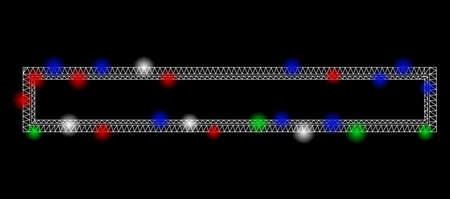1. Understanding Feng Shui: An Introduction for American Homes
Feng Shui is an ancient Chinese practice that focuses on creating harmony and balance within a living space. At its core, Feng Shui is about the flow of energy—known as “Qi” (pronounced “chee”)—and how our surroundings influence our well-being, mood, and even our success in life. While Feng Shui has its roots in Eastern philosophy, many of its principles can be easily adapted to fit the modern American home.
What Is Feng Shui?
Feng Shui translates to “wind” and “water,” which symbolize movement and flow. The goal is to arrange your home so that positive energy moves freely, supporting every aspect of your life. It’s not just about decoration; it’s about creating a space where you feel comfortable, energized, and at peace.
Core Principles That Fit American Lifestyles
Many Americans value comfort, functionality, and style in their homes. Feng Shui complements these values by emphasizing:
- Natural Light: Encouraging sunlight creates warmth and positivity.
- Clutter-Free Spaces: An organized home boosts mental clarity and relaxation.
- Intentional Furniture Placement: Arranging furniture to support easy movement and connection with others.
The table below shows how traditional Feng Shui principles translate into modern American living environments:
| Traditional Feng Shui Principle | Modern American Home Application |
|---|---|
| Maximize natural light | Use large windows, open curtains, add skylights |
| Create clear pathways for Qi | Avoid blocking walkways with furniture or clutter |
| Balance elements (wood, water, fire, earth, metal) | Add plants (wood), mirrors (water), candles (fire), ceramics (earth), metal fixtures (metal) |
| Use mirrors to reflect energy | Place mirrors strategically to make spaces feel larger and brighter |
| Avoid sharp angles (“poison arrows”) | Select rounded furniture when possible; soften corners with décor or plants |
The Role of Light and Mirrors in Energy Flow
Light represents vibrant energy in Feng Shui. Natural light is considered the best source of positive Qi. Mirrors are tools that can multiply light and energy, but their placement is important—they should be used to reflect beautiful views or amplify sunlight rather than create confusion or bounce energy out of the home.
Why Americans Are Embracing Feng Shui Concepts
The desire for inviting, functional homes makes Feng Shui especially relevant in the United States today. Whether you live in a downtown apartment or a suburban house, applying these principles can help you create a space that supports your goals and personal style—all while enhancing the flow of energy through thoughtful use of light and mirrors.
2. The Role of Natural and Artificial Light in Energy Flow
In Feng Shui, light is considered a vital carrier of energy, or “Qi,” and plays a big role in shaping the atmosphere of your home. Whether it’s sunlight streaming through your windows or the lighting fixtures you choose, both natural and artificial light influence how energy moves within American living spaces.
How Sunlight Impacts Qi in Your Home
Sunlight is seen as the purest form of energy. Spaces that receive plenty of natural light are usually more vibrant, cheerful, and feel more open. In American homes, large windows, skylights, and glass doors help maximize sunlight, making rooms feel alive and welcoming. On the flip side, dark corners or rooms with little daylight can lead to stagnant energy that may affect mood and overall well-being.
Tips for Enhancing Natural Light:
- Keep windows clean to let in more sunlight
- Use light-colored curtains or blinds that allow light to filter through
- Arrange furniture so it doesn’t block windows
- Add mirrors across from windows to reflect natural light deeper into the room
The Influence of Artificial Lighting Choices
When sunlight isn’t available—like at night or in rooms without many windows—artificial lighting becomes essential for maintaining good energy flow. The type, color, and placement of lights all matter. Bright, warm-toned bulbs create a cozy, uplifting atmosphere perfect for family rooms or kitchens. Softer, dimmable lights are great for bedrooms where you want to relax and unwind.
Common Types of Home Lighting and Their Energy Effects:
| Type of Lighting | Best For | Energy Effect (Qi) |
|---|---|---|
| Warm White Bulbs | Living rooms, bedrooms | Creates comfort and relaxation |
| Cool White Bulbs | Kitchens, bathrooms, garages | Enhances alertness and clarity |
| Dimmable Lamps | Any room needing flexibility | Allows control over mood and energy flow |
| Pendant Lights/Chandeliers | Entryways, dining rooms | Draws attention and uplifts Qi in gathering areas |
| Recessed Lighting | Hallways, modern spaces | Keeps energy steady without overwhelming brightness |
A Balanced Approach for American Homes
The key is to use a combination of both sunlight and well-placed artificial lighting to keep energy moving smoothly throughout your living space. By paying attention to how light enters each room and making thoughtful choices about lamps and fixtures, you help create an inviting environment that supports positive Qi—and makes your home feel brighter in every sense.

3. Mirrors in Feng Shui: Placement, Purpose, and Cultural Adaptations
The Symbolic Power of Mirrors in Feng Shui
In Feng Shui, mirrors are often called the “aspirin” of the practice because they can quickly shift energy (or “chi”) within a space. Traditionally, mirrors symbolize water and are believed to reflect, expand, and redirect energy. When used thoughtfully, they bring more light, clarity, and positive flow into your home. However, improper placement can cause restlessness or reflect negative energy.
Functional Use of Mirrors in American Homes
Mirrors are not just decorative—they’re practical tools for shaping the atmosphere in any room. In the context of American homes, where open floor plans and natural light are highly valued, mirrors play an essential role in brightening dark corners, making small spaces feel larger, and balancing the energy of busy family areas.
Common Mirror Placements and Their Effects
| Room | Recommended Placement | Purpose & Effect |
|---|---|---|
| Living Room | Across from a window or beautiful view | Reflects natural light and positive scenery to uplift the mood and energy |
| Dining Room | On a wall that reflects the dining table | Symbolically doubles abundance and enhances social harmony during meals |
| Bedroom | Avoid direct reflection of bed; if used, place inside closet door or on side walls | Prevents restless sleep and supports calm, restorative energy at night |
| Entryway/Hallway | On a side wall (not directly facing the front door) | Welcomes positive chi but prevents it from bouncing right back out of the home |
| Home Office | Behind your desk or reflecting plants/artwork (not computer screen) | Promotes clarity of thought and energizes the workspace without causing distractions |
Cultural Adaptations: Blending Feng Shui with American Lifestyles
American homes often feature open layouts, large windows, and multi-purpose rooms. When adapting Feng Shui mirror principles to these spaces:
- Avoid placing mirrors where they face clutter or unfinished projects. Mirrors double what they reflect—make sure it’s something positive!
- Select frames that match your personal style. Rustic wood or sleek metal frames can blend seamlessly with modern American décor while supporting good chi flow.
- If you live in an apartment with limited natural light, use mirrors strategically to bounce light deeper into your home.
- Avoid excessive use of mirrored furniture in bedrooms. This can create an overly “busy” feeling that disrupts rest.
- Create intentional focal points. Hang mirrors to highlight art, plants, or beautiful architectural features instead of TVs or empty walls.
Practical Tips for Everyday Mirror Use in the U.S.
- Check what your mirror reflects. Always stand back and see what’s visible—aim for uplifting views!
- Keep mirrors clean. Dust and smudges can block energy flow; regular cleaning keeps chi moving smoothly.
- Avoid broken or cracked mirrors. In Feng Shui (and Western superstition), these symbolize broken energy and should be replaced promptly.
- If you have children or pets, choose secure mounting options to keep mirrors safe and stable.
4. Balancing and Enhancing Energy Through Thoughtful Design
Integrating Light and Mirrors in American Homes
In Feng Shui, the way we use light and mirrors can dramatically affect the energy, or chi, within a space. American homes, whether cozy bungalows or spacious open-plan layouts, have unique characteristics that offer great opportunities to optimize energy flow through thoughtful design. Below are practical strategies to help you balance and enhance the energy in your home by integrating light and mirrors, all while keeping American lifestyles and architecture in mind.
Practical Strategies for Using Light
- Maximize Natural Light: Open up curtains and blinds during the day to let sunlight fill your rooms. Sunlight not only uplifts mood but also invites vibrant energy into your living spaces.
- Layer Lighting: Use a mix of overhead lighting, floor lamps, and table lamps to create a warm, inviting atmosphere. Adjustable lighting helps you control the mood for different activities.
- Choose the Right Bulbs: Soft white LED bulbs are popular in American homes for their energy efficiency and natural glow. Avoid harsh fluorescent lighting, as it can disrupt harmonious energy flow.
The Power of Mirrors in Feng Shui
- Expand Small Spaces: Place mirrors across from windows to reflect natural light and make rooms feel larger—an effective trick for apartments or smaller suburban homes.
- Avoid Facing Doors Directly: In Feng Shui, mirrors facing the main entrance can reflect positive energy out of the house. Instead, position mirrors to bounce light around corners or hallways.
- Enhance Beautiful Views: Use mirrors to reflect pleasant outdoor scenery or artwork, doubling the positive visual impact.
Quick Reference Table: Mirror & Light Placement Tips
| Goal | Lighting Tip | Mirror Placement Tip |
|---|---|---|
| Brighten Dark Corners | Add a floor lamp with a soft shade | Hang a mirror adjacent to the light source |
| Create Spacious Feel | Use ceiling lights in open-plan areas | Place large mirrors opposite windows |
| Enhance Entryway Energy | Install sconce lighting on walls | Avoid placing mirrors directly facing the front door; angle them to reflect welcoming spaces instead |
| Add Warmth to Living Areas | Select table lamps with warm-toned bulbs | Position mirrors behind lamps to amplify their glow |
Tuning Into Your Home’s Unique Style
No two American homes are exactly alike. Whether you’re working with a modern loft in New York City or a classic ranch-style house in Texas, adjust these Feng Shui principles to suit your personal taste and space. With mindful placement of light sources and mirrors, you’ll create an uplifting environment that feels both balanced and uniquely yours.
5. Everyday Feng Shui: Simple Habits for Positive Energy
Brighten Your Space with Natural Light
Busy American lifestyles often mean we spend a lot of time indoors. Letting in as much natural light as possible is an easy way to boost positive energy, or “chi,” in your home. Open curtains during the day, keep windows clean, and use light-colored window treatments to maximize sunlight. If your space is limited or shaded, consider using full-spectrum bulbs that mimic daylight.
Mirror Placement for Energy Flow
Mirrors can be powerful tools in Feng Shui when used thoughtfully. They reflect both light and energy, helping to brighten dark corners and expand small rooms. However, placement is key! Avoid placing mirrors directly opposite your bed or front door—this can bounce energy away instead of inviting it in. Instead, position mirrors to reflect beautiful views, artwork, or greenery to double the positive vibes.
| Feng Shui Tip | Quick Action | Why It Works |
|---|---|---|
| Let in morning sunlight | Open blinds first thing each day | Boosts mood and sets a positive tone |
| Clean mirrors & windows weekly | Add to weekend chores | Keeps energy clear and bright |
| Avoid mirror clutter | Limit to one mirror per room if possible | Prevents scattered energy and distraction |
| Reflect nature or art | Angle mirrors toward a plant or painting you love | Doubles uplifting visuals and energy flow |
Keep Pathways Clear for Easy Chi Movement
The way you move through your home affects how energy moves too! Make it a habit to keep hallways, entryways, and main walkways free from clutter like shoes, bags, or laundry baskets. This not only helps energy flow smoothly but also makes life less stressful during busy mornings.
Quick Tips for Busy Americans:
- Shoe Storage: Place a simple shoe rack by the door to keep entryways tidy.
- Cord Control: Use cord organizers behind TVs and desks to prevent tangled messes that block good chi.
- Drop Zones: Create a designated spot for keys, mail, and backpacks so surfaces stay clear.
Create Evening Rituals for Calm Energy
In the evenings, dim lights gradually to signal relaxation time and encourage restful sleep. Try switching off harsh overhead lighting and use lamps or string lights instead. This helps shift your home’s energy from active (yang) during the day to restful (yin) at night—a key balance in Feng Shui.

